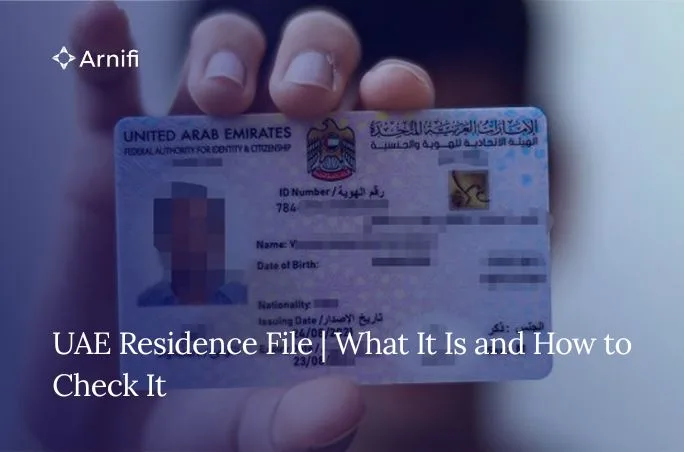Essential Guide To PCI Compliance In UAE
by Shethana May 14, 2024  9 MIN READ
9 MIN READ

PCI Compliance In UAE
PCI Compliance is of utmost importance in the United Arab Emirates (UAE), especially in the financial services sector. The UAE has a thriving economy and is home to numerous financial institutions that process a large number of payment card transactions. Ensuring the security of cardholder data is crucial for maintaining customer trust and protecting against data breaches. Compliance with the Payment Card Industry Data Security Standard (PCI DSS) is necessary for businesses operating in the UAE to demonstrate their commitment to data security and protect sensitive customer information.
Defining PCI Compliance and Its Necessity
PCI Compliance refers to the adherence to the Payment Card Industry Data Security Standard (PCI DSS), a set of security standards established by major card service providers. The PCI DSS sets the requirements for businesses that handle payment card transactions to ensure the security of cardholder data and protect against fraud and data theft.
Compliance with PCI DSS is necessary for businesses as it helps establish customer trust and safeguard sensitive information. With the increasing number of data breaches, customers are becoming more concerned about the security of their payment card data. Compliance with PCI DSS demonstrates a business’s commitment to information security and builds confidence in customers that their data is being handled securely. Non-compliance can result in severe consequences, including financial penalties, loss of reputation, and potential legal action.
The Role of PCI Compliance in UAE’s Financial Landscape
PCI Compliance plays a significant role in the financial landscape of the United Arab Emirates (UAE). The UAE is known for its thriving financial services industry, with numerous banks and financial institutions operating in the country. These institutions handle a large volume of payment card transactions, making the security of cardholder data a top priority.
Compliance with the Payment Card Industry Data Security Standard (PCI DSS) is essential for financial institutions in the UAE to ensure the protection of cardholder data and maintain customer trust. By adhering to PCI DSS requirements, financial institutions can demonstrate their commitment to data security and safeguard sensitive information. This compliance helps build customer confidence and establishes a secure payment ecosystem in the UAE’s financial industry.
Decoding the PCI DSS Framework
The PCI DSS framework provides a comprehensive set of requirements that businesses must implement to achieve compliance. The framework consists of 12 requirements that cover various aspects of data security, network protection, and cardholder data management.
The Payment Card Industry Data Security Standard (PCI DSS) is governed by the Payment Card Industry Security Standards Council (PCI SSC), which is responsible for maintaining, evolving, and enforcing the standard. The PCI SSC ensures that the requirements of the PCI DSS are up to date with the evolving threat landscape and industry best practices.
Objectives and Goals of the PCI DSS Standard
The PCI DSS standard aims to achieve several objectives and goals to ensure the security of payment card transactions and protect cardholder data. The primary objectives of the standard include:
- Building a secure network and systems: Businesses must establish and maintain a secure network infrastructure to protect cardholder data from unauthorized access.
- Protecting cardholder data: Measures must be implemented to ensure the secure storage, transmission, and processing of cardholder data to prevent data breaches.
- Managing vulnerabilities: Regular monitoring and maintenance of systems and applications are necessary to identify and address any vulnerabilities that may pose a risk to cardholder data.
- Implementing strong access controls: Access to cardholder data must be restricted to authorized individuals, and robust authentication mechanisms need to be in place to prevent unauthorized access.
- Regularly monitoring and testing networks: Continuous monitoring and testing of security systems help identify and remediate any security vulnerabilities or weaknesses in the network.
By achieving compliance with the PCI DSS requirements, businesses can ensure payment security, protect cardholder data, and maintain customer trust.
Detailed Overview of the 12 PCI DSS Requirements
The PCI DSS framework consists of 12 requirements that businesses must implement to achieve compliance. These requirements cover a wide range of security measures to protect cardholder data and ensure the security of payment card transactions. The 12 requirements are as follows:
- Install and maintain firewalls: Businesses must have firewalls in place to protect cardholder data and prevent unauthorized access to their systems.
- Use unique system passwords: Each individual with access to cardholder data should have a unique username and password combination for authentication.
- Protect stored cardholder data: Sensitive cardholder data should be stored securely with encryption and access controls.
- Encrypt cardholder data during transmission: When transmitting cardholder data over public networks, encryption protocols must be used to protect the data from unauthorized interception.
- Use and regularly update antivirus software: Businesses must have up-to-date antivirus software in place to detect and prevent malware infections.
- Develop and maintain secure systems and applications: Secure coding practices and regular updates should be followed to ensure the security of systems and applications.
- Restrict access to cardholder data: Access to cardholder data should be limited to authorized individuals with a need to know.
- Assign unique user IDs: Every individual with access to cardholder data should have a unique user ID to track and monitor their activities.
- Restrict physical access to cardholder data: Physical access to cardholder data should be restricted through measures like biometric locks or secure access controls.
- Regularly test security systems and processes: Businesses should conduct regular security testing and vulnerability assessments to identify and address any vulnerabilities in their systems and processes.
- Implement and maintain information security policies: Policies and procedures should be in place to establish a framework for information security and guide employees in following best practices.
- Maintain a security awareness program: Businesses should provide regular training and awareness programs to educate employees about the importance of data security and their responsibilities in maintaining compliance.
With the implementation of these requirements, businesses can ensure the protection of cardholder data and maintain compliance with the PCI DSS standard.
Achieving PCI Compliance: A Step-by-Step Guide
Achieving PCI Compliance involves a step-by-step process that businesses must follow to ensure the security of payment card transactions and protect cardholder data. The process includes the following steps:
- Initial assessment and gap analysis: Conduct an assessment to identify the gaps in your current security measures and determine the necessary steps to achieve compliance.
- Implement required controls and measures: Put in place the security controls and measures outlined in the PCI DSS framework to secure cardholder data and protect payment card transactions.
- Conduct self-assessment and remediation: Regularly assess your compliance with the PCI DSS requirements and remediate any identified issues to maintain compliance.
By following these steps, businesses can achieve and maintain PCI Compliance, ensuring the security of payment card transactions and protecting sensitive cardholder data.
Technology and Security Measures for PCI Compliance
Implementing technology and security measures is crucial for achieving and maintaining PCI Compliance. These measures help protect cardholder data and ensure the security of payment card transactions. Some essential technology and security measures for PCI Compliance include:
- Data encryption during transmission to protect sensitive information from unauthorized access.
- The use of antivirus software to detect and prevent malware infections that could compromise cardholder data.
- Implementing firewalls to secure networks and prevent unauthorized access to cardholder data.
- Regular security monitoring to identify and address any vulnerabilities or breaches in real-time.
- Intrusion detection and prevention systems to detect and prevent unauthorized access to cardholder data.
By implementing these technology and security measures, businesses can enhance the security of their payment card transactions and maintain compliance with PCI DSS.
Conclusion
In conclusion, understanding and implementing PCI compliance in the UAE is crucial for safeguarding sensitive financial data and enhancing trust with customers. The PCI DSS framework outlines essential requirements to protect cardholder information effectively. By following a structured approach, including initial assessment, implementing controls, and regular monitoring, businesses can achieve and maintain compliance. Overcoming challenges through strategic management and continuous improvement not only mitigates risks but also positions compliance as a competitive advantage. Prioritizing ongoing compliance efforts and leveraging best practices ensure sustained protection and demonstrate commitment to data security in the evolving financial landscape of the UAE.
Frequently Asked Questions
What is the Deadline for PCI Compliance in the UAE?
The deadline for PCI Compliance in the United Arab Emirates (UAE) varies depending on the specific industry and business size. It is essential for businesses to check with their acquiring bank or card brands for the specific compliance deadlines applicable to their industry and transaction volume.
How Does PCI Compliance Vary by Business Size?
PCI Compliance requirements may vary based on the size of the business. The Payment Card Industry Data Security Standard (PCI DSS) has different levels of compliance based on the number of transactions processed annually. The compliance levels are determined by the card brands and acquiring banks and may have specific requirements for each level.
Can Small Businesses Afford PCI Compliance?
PCI Compliance can be affordable for small businesses, considering the potential consequences of non-compliance. The cost of compliance varies based on the specific requirements applicable to the business and can be managed by implementing cost-effective security measures and leveraging available resources.
What Are the First Steps Toward PCI Compliance in the UAE?
The first steps toward achieving PCI Compliance in the UAE include conducting an initial assessment and gap analysis to identify compliance gaps, implementing required controls and measures, and conducting regular self-assessments to ensure ongoing compliance with the Payment Card Industry Data Security Standard (PCI DSS).
About Arnifi
Arnifi is digital first Corporate service provider helping companies enter the Middle East region, starting with UAE and Saudi Arabia markets. Founded and backed by professionals from Amazon, Souq and other large companies operating in KSA – the team understands what it takes to succeed as a startup in both UAE and Saudi Arabian markets, apart from going through the setup process multiple times. Arnifi will provide a truly digital experience to entry and scale up of companies both UAE and Saudi Arabia. Discover tailored solutions and strategic partnerships that propel your business forward. Check out at – www.Arnifi.com for more details.
ALSO READ: How to Easily Open An Emirates NBD Account?
Top UAE Packages

Related Articles
Top UAE Packages



